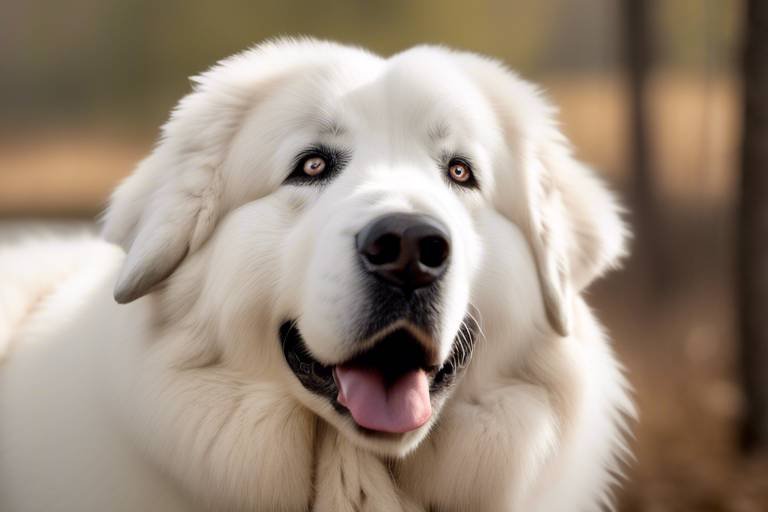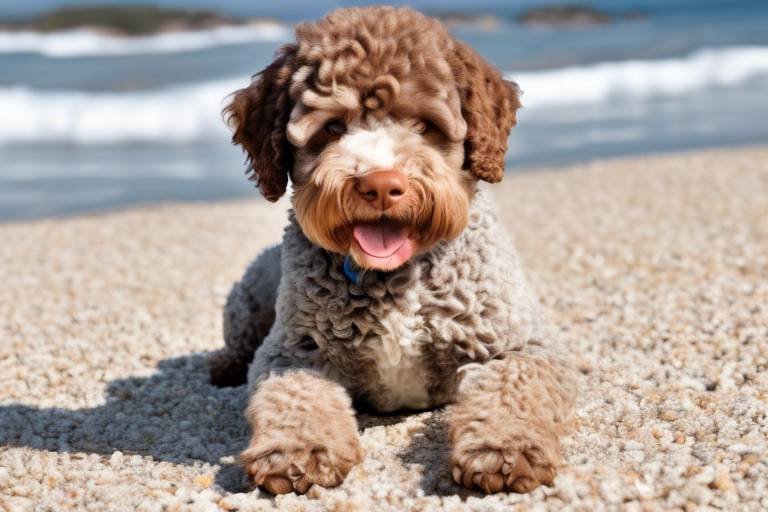The Characteristics of French Bulldogs
French Bulldogs, often affectionately called "Frenchies," are a breed that has captured the hearts of dog lovers worldwide. With their unique blend of charm, intelligence, and a touch of mischief, they stand out in the canine world. This article explores the distinctive traits of French Bulldogs, including their physical features, temperament, health concerns, and care requirements, providing a comprehensive guide for potential owners and enthusiasts alike.
When you first lay eyes on a French Bulldog, it's hard not to be captivated by their distinctive physical traits. These compact little dogs typically weigh between 16 to 28 pounds, making them ideal for both city dwellers and those with larger homes. Their most notable features are their bat-like ears, which stand erect and give them an alert expression. Coupled with a short, muscular build and a broad head, French Bulldogs exude an air of confidence and charisma. Their coat, which can come in a variety of colors including brindle, fawn, and white, is smooth and requires minimal grooming, making them a practical choice for busy owners.
Understanding the temperament of French Bulldogs is essential for potential owners. These dogs are known for their affectionate nature, often forming strong bonds with their families. They thrive on companionship, making them excellent pets for singles, couples, and families alike. Frenchies are playful and enjoy engaging with their humans, often displaying a goofy side that can bring a smile to anyone's face. Their sociability means they generally get along well with other pets, making them adaptable companions in various environments.
French Bulldogs are renowned for their friendly and social behavior. They are not just dogs; they are social butterflies in the canine world! Whether at the dog park or in your living room, they love to interact with people and other pets. Their adaptable nature allows them to fit seamlessly into different social settings, whether it's a bustling family gathering or a quiet evening at home. It's not uncommon to see a Frenchie charming everyone around them with their playful antics and loving demeanor.
When it comes to family dynamics, French Bulldogs shine brightly. They are known for their loving and protective nature, making them wonderful companions for children. Their playful spirit encourages interactive play, while their gentle demeanor ensures that they are patient with little ones. Additionally, French Bulldogs can coexist harmoniously with other pets, provided they are introduced properly. This ability to integrate into family life makes them a popular choice for many households.
While French Bulldogs are generally friendly, they can show a cautious side around strangers. They have a welcoming demeanor but can be protective of their families, making them excellent watchdogs. This blend of charm and caution can be both endearing and useful, as they will alert you to any unusual activity around your home. Their unique personality means that they can be both a loving companion and a vigilant guardian.
Training a French Bulldog can be a delightful challenge. They are intelligent but can also be quite stubborn. This means that while they can learn commands and tricks quickly, they may also test your patience. Effective training methods include using positive reinforcement, such as treats and praise, to encourage good behavior. Consistency is key, and incorporating fun into training sessions can help keep them engaged and eager to learn.
Like all breeds, French Bulldogs have specific health concerns that potential owners should be aware of. They are particularly prone to breathing difficulties due to their brachycephalic (flat-faced) structure. This can lead to a condition known as brachycephalic obstructive airway syndrome (BOAS), which makes it essential to monitor their breathing during physical activities, especially in hot weather. Additionally, French Bulldogs can face skin conditions and hip dysplasia, necessitating regular veterinary care.
Preventative care is crucial for maintaining the health of French Bulldogs. Regular vet check-ups, vaccinations, and a balanced diet play significant roles in keeping them healthy. Owners should also be vigilant about their dog's weight, as obesity can exacerbate existing health issues. Regular exercise and mental stimulation are essential for their overall well-being and happiness.
Some of the most prevalent health issues affecting French Bulldogs include:
- Brachycephalic obstructive airway syndrome (BOAS)
- Skin allergies and dermatitis
- Hip dysplasia
- Intervertebral disc disease (IVDD)
Recognizing the symptoms of these conditions early can lead to timely veterinary care, ensuring your Frenchie stays healthy and happy.
French Bulldogs have unique grooming requirements. Their short coat requires minimal maintenance, but regular brushing helps to keep their skin healthy and remove loose hair. Bathing should be done as needed, typically every few months, to keep them fresh and clean. Pay special attention to the folds on their face, as moisture can accumulate there, leading to skin issues. Keeping their ears clean and nails trimmed is also essential for their hygiene.
Understanding the exercise needs of French Bulldogs is vital for their well-being. While they do enjoy playtime and short walks, they can tire easily due to their breathing issues. Aim for regular, moderate exercise to keep them fit without overexerting them. Activities like gentle fetch or short strolls around the neighborhood can provide the right amount of physical and mental stimulation.
French Bulldogs adapt well to various living environments, making them suitable for both apartments and houses. They do not require large backyards but benefit from a cozy space where they can lounge and play. Creating a comfortable environment with a designated sleeping area and safe toys can help them feel at home.
When considering bringing a French Bulldog into your life, it's essential to choose wisely. Look for a reputable breeder who prioritizes health and temperament. Assess the puppy's health by checking for clear eyes, clean ears, and a playful demeanor. Remember, adopting from shelters can also be a wonderful option, giving a loving home to a dog in need.
Q: Are French Bulldogs good with children?
A: Yes, French Bulldogs are known for their affectionate nature and can be great companions for children.
Q: How often should I groom my French Bulldog?
A: Their short coat requires minimal grooming, but brushing once a week is recommended to keep their skin healthy.
Q: Do French Bulldogs have special health concerns?
A: Yes, they can be prone to breathing difficulties and skin issues, so regular vet check-ups are essential.
Q: How much exercise do French Bulldogs need?
A: They require moderate exercise, such as short walks and playful activities, but be mindful not to overexert them.
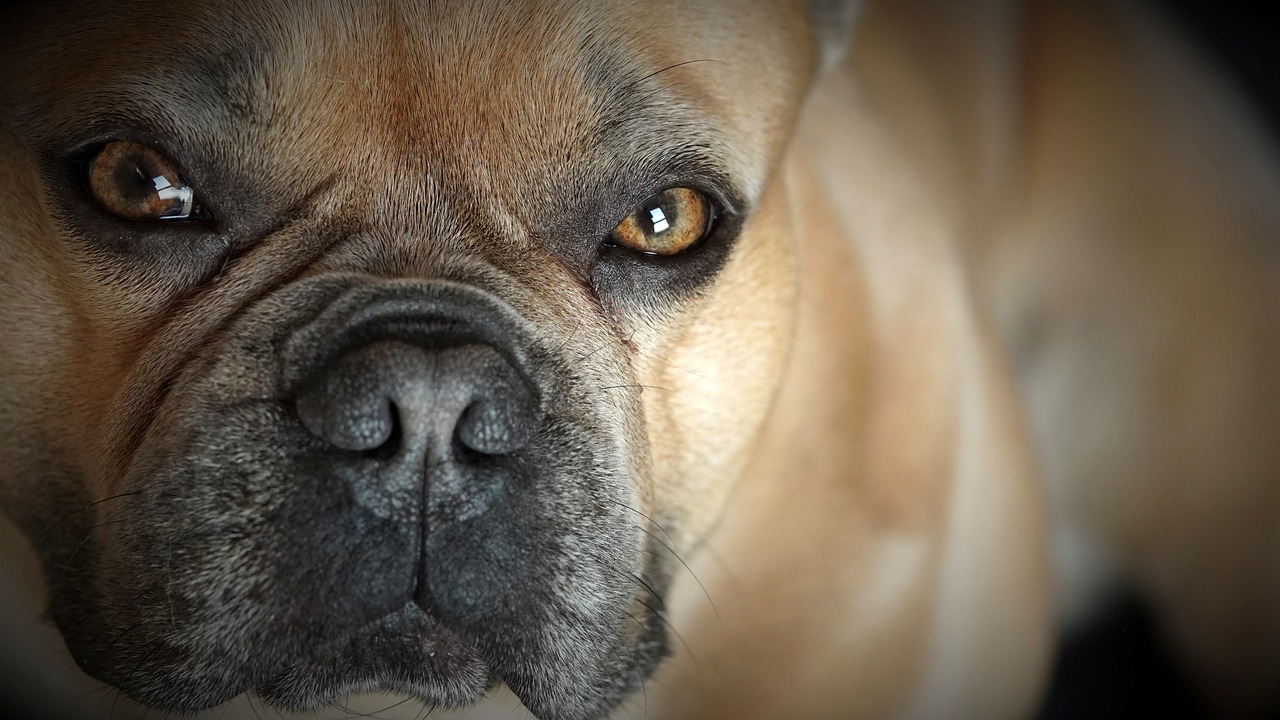
Physical Appearance
When you think of a French Bulldog, the first image that likely pops into your mind is that of a compact, muscular dog with a charmingly unique face. These little bundles of joy are not just cute; they come with a set of distinctive physical traits that make them stand out in any crowd. From their adorable bat-like ears to their stocky build, French Bulldogs are a breed that catches the eye immediately.
One of the most notable features of a French Bulldog is their size. Typically weighing between 16 to 28 pounds, they are small enough to fit comfortably in an apartment yet sturdy enough to play around in the backyard. Their short snouts and flat faces give them a unique expression that can melt anyone's heart. This brachycephalic structure, while adorable, also contributes to some of the health issues they may face, such as breathing difficulties. However, their looks are just the tip of the iceberg when it comes to their appeal.
French Bulldogs possess a muscular build that is both compact and powerful. Their broad shoulders and strong legs give them a robust appearance, making them look like little athletes. They have a smooth coat that comes in a variety of colors, including brindle, fawn, and white, often with unique markings that add to their charm. The coat is short and requires minimal grooming, which is a bonus for busy pet owners.
Another fascinating aspect of their physical appearance is their tail. Unlike many breeds, French Bulldogs often have a short, straight tail that adds to their overall compact look. It's a characteristic that sets them apart from other breeds, making them instantly recognizable. Their expressive eyes, which are dark and round, are often filled with curiosity and mischief, reflecting their playful nature.
To summarize, the physical characteristics of French Bulldogs include:
- Size: Compact and muscular, weighing between 16 to 28 pounds.
- Face: Short snouts and flat faces that create an adorable expression.
- Coat: Short, smooth, and comes in various colors.
- Tail: Short and straight, adding to their unique look.
- Eyes: Dark and round, often reflecting their playful demeanor.
In essence, French Bulldogs are a perfect blend of adorable looks and robust health, making them a beloved breed for many dog lovers. Their unique appearance is not only a conversation starter but also a testament to the breed's rich history and charm. Whether you're considering adding one to your family or simply admire them from afar, their physical traits are sure to leave a lasting impression.
- What is the average lifespan of a French Bulldog? Typically, they live between 10 to 14 years.
- Do French Bulldogs shed a lot? They are moderate shedders, so regular grooming can help manage it.
- Are French Bulldogs good for families? Yes, they are known for their affectionate and friendly nature, making them great companions for families.
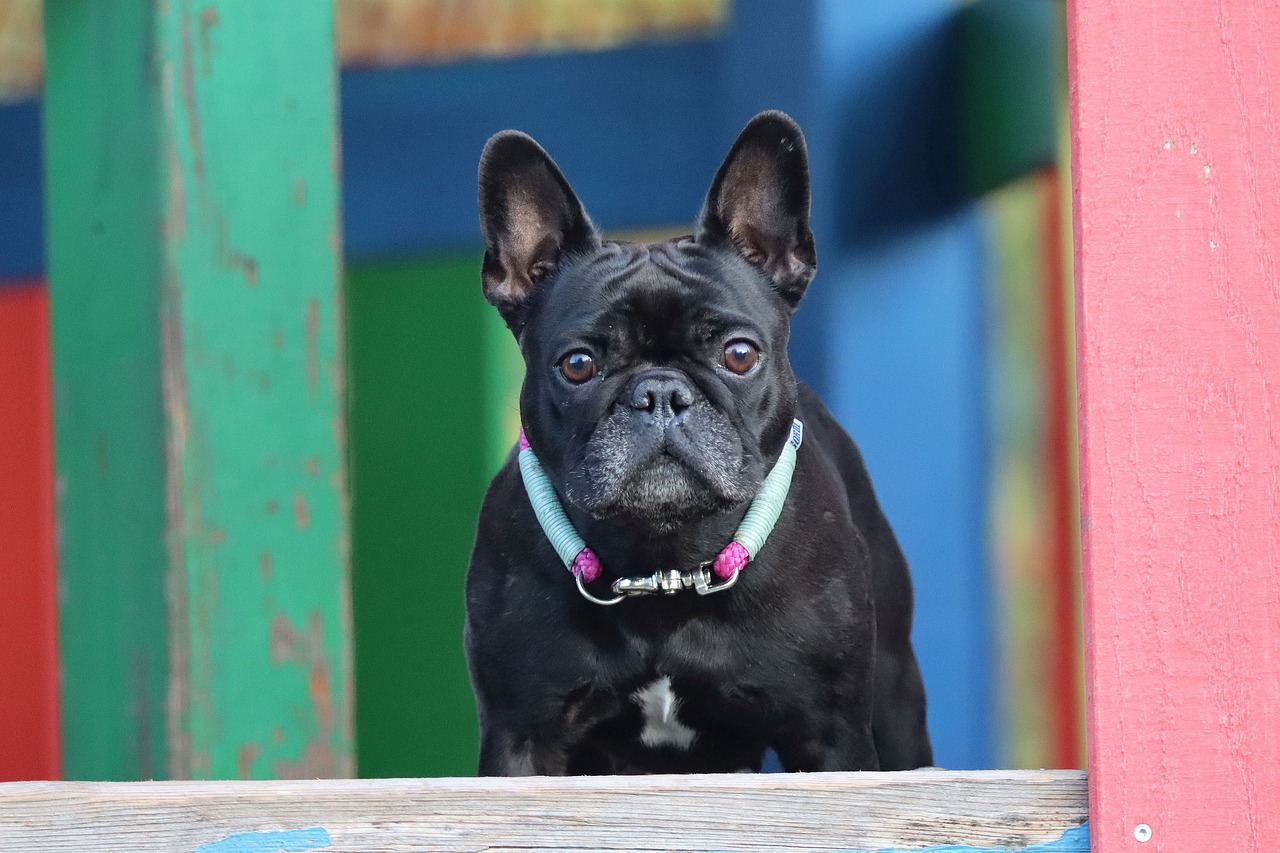
Temperament and Personality
When it comes to French Bulldogs, their temperament is as unique as their appearance. These little bundles of joy are known for their affectionate nature and playful spirit, making them excellent companions for individuals and families alike. They thrive on human interaction and love nothing more than to be part of the family. Imagine coming home after a long day, only to be greeted by a wagging tail and a face full of love—that’s a typical day with a Frenchie!
One of the standout characteristics of French Bulldogs is their sociability. They are not just friendly; they are downright charming. Their playful demeanor often translates into endless entertainment, whether it’s chasing after a toy or performing their quirky antics. French Bulldogs have a knack for making everyone around them smile, and their goofy personalities can lighten even the heaviest of moods. However, it’s important to understand that their sociability extends beyond just humans; they often get along well with other pets, making them a fantastic addition to multi-pet households.
French Bulldogs are renowned for their friendly and social behavior. They tend to be very adaptable, fitting in well with various environments, whether it’s a bustling household or a quieter setting. Their ability to interact positively with both people and other animals is one of the reasons they are so popular. They enjoy playing with children, and their patient nature means they can handle the occasional roughhousing that comes with being around little ones. However, it’s crucial to supervise interactions between Frenchies and very young children to ensure a safe and happy experience for everyone.
In family settings, French Bulldogs shine bright. They have a natural affinity for bonding with family members, often forming a special connection with each person. Their loving and protective nature makes them excellent watchdogs, even if their bark is more of a gentle woof. They thrive on companionship and often seek out affection, whether it’s snuggling on the couch or following you around the house. This loyalty and attachment can make them feel like a true member of the family.
When it comes to strangers, French Bulldogs exhibit a delightful mix of welcome and caution. They are generally friendly and curious, often approaching new people with a wagging tail and a hopeful expression, as if to say, "Will you pet me?" However, they can be a bit reserved at first, taking their time to warm up to unfamiliar faces. This cautious approach can be both charming and protective, as they are quick to alert their owners if they sense something amiss. It’s this balance of friendliness and protectiveness that makes them such beloved companions.
While French Bulldogs are intelligent, they can also be a bit stubborn. This combination means that training requires a bit of patience and creativity. They respond well to positive reinforcement techniques, so using treats and praise can work wonders. However, be prepared for some playful resistance; they might just give you that adorable "I’m not listening" look. Consistency is key, and incorporating fun into training sessions can help keep their attention. After all, who wouldn’t want to train their Frenchie to perform tricks for treats?
In summary, the temperament and personality of French Bulldogs make them a delightful addition to any household. Their affectionate nature, sociability, and intelligent yet stubborn demeanor create a unique blend that captivates the hearts of many. If you’re considering bringing one of these lovable companions into your life, be prepared for a journey filled with joy, laughter, and unconditional love!
- Are French Bulldogs good with children? Yes, they are known for their patient and playful nature, making them great companions for kids.
- Do French Bulldogs require a lot of exercise? They need regular walks and playtime, but they are not as high-energy as some other breeds.
- Can French Bulldogs live in apartments? Absolutely! They adapt well to apartment living as long as they get enough exercise and social interaction.
- Are French Bulldogs prone to health issues? Yes, they can face certain health challenges, so regular veterinary check-ups are essential.
Social Behavior
French Bulldogs are renowned for their friendly and sociable nature, which makes them a delight in any household. Their playful demeanor is not just a trait; it's a lifestyle! These little bundles of joy thrive on interaction, whether it’s with their human companions or fellow furry friends. Imagine a small, muscular dog with a heart full of love, always ready to greet you with a wagging tail and a playful nudge. That’s a French Bulldog for you!
One of the most charming aspects of their social behavior is their adaptability. French Bulldogs can easily fit into various environments, from bustling urban apartments to serene suburban homes. They love to be included in family activities, and their affectionate nature often leads them to become the center of attention. Whether it’s snuggling on the couch during a movie night or joining in on a game of fetch at the park, they are always up for some fun!
When it comes to interacting with other pets, French Bulldogs usually display a gentle and playful attitude. Their sociability extends beyond just humans; they can get along well with dogs of all sizes, although their exuberance can sometimes be overwhelming for smaller pets. It's essential to supervise their interactions, especially when introducing them to new friends. A little patience goes a long way in helping them learn the ropes of canine etiquette.
Moreover, their curious nature makes them excellent explorers. They are known to approach new people and situations with a mix of excitement and caution. This behavior can be particularly endearing; they might greet a stranger with a friendly sniff followed by a playful bounce. However, it's important to note that they can be a bit protective of their family, which adds an interesting layer to their social behavior. They are not aggressive by nature, but they will bark to alert you of any unusual happenings.
To sum it up, the social behavior of French Bulldogs is characterized by their:
- Affectionate interactions with family and friends
- Playful demeanor that keeps everyone entertained
- Gentle approach towards other pets
- Curiosity about new people and environments
- Protective instincts that make them loyal companions
In conclusion, the social behavior of French Bulldogs is a blend of playfulness, affection, and a touch of protectiveness. They truly embody the spirit of companionship, making them ideal pets for families and individuals alike. Their ability to adapt and thrive in various social settings is what makes them such beloved members of many households.
- Are French Bulldogs good with children? Yes, they are known to be very affectionate and gentle with kids.
- How do French Bulldogs behave with other pets? They usually get along well with other dogs and pets, but supervision is advised during introductions.
- Do French Bulldogs require a lot of socialization? While they are naturally social, it’s beneficial to expose them to different environments and people to enhance their social skills.
- Can French Bulldogs be left alone for long periods? They prefer companionship and can develop separation anxiety if left alone for too long.
Family Dynamics
When it comes to family dynamics, French Bulldogs are like that lovable friend who fits in seamlessly at any gathering. Their affectionate nature makes them perfect companions for families of all shapes and sizes. Whether you have toddlers, teenagers, or even elderly family members, these dogs have a unique way of making everyone feel special. Imagine a little bundle of joy, with a wagging tail and a goofy grin, bringing laughter and warmth into your home!
One of the most endearing qualities of French Bulldogs is their gentle demeanor. They are known to be incredibly patient, which is a fantastic trait when interacting with young children. Kids can sometimes be a bit rough or overly excited, but Frenchies tend to handle this with grace. They’ll happily endure a toddler's hugs or a child's playful antics without a second thought, making them a wonderful addition to any family.
Moreover, French Bulldogs are not just child-friendly; they also get along well with other pets. They have a social nature that allows them to adapt easily to various household dynamics. Whether you have a cat that rules the roost or another dog that loves to play, a French Bulldog will typically find a way to coexist harmoniously. Their playful spirit and friendly disposition often lead to delightful interactions, making playtime an adventure filled with laughter.
However, it’s important to remember that every dog has its own personality. While most French Bulldogs are sociable, some may take a little longer to warm up to new family members or pets. Patience is key! Establishing a routine where they can interact gradually will help them feel secure and loved. Additionally, introducing them to new experiences in a controlled manner can enhance their confidence and adaptability.
In a family setting, French Bulldogs also tend to develop strong bonds with their human companions. They often follow their owners from room to room, seeking to be part of every family activity. This loyalty and love can be incredibly rewarding, as you’ll find that your Frenchie not only becomes a pet but also a cherished family member. They thrive on love and attention, which means they will often return that affection tenfold.
In summary, if you’re considering bringing a French Bulldog into your home, you can expect a furry friend who will embrace your family with open paws. Their ability to form deep connections, combined with their playful nature, makes them an ideal choice for families looking for a loving and loyal companion. Just remember to provide them with the love, attention, and care they deserve, and you’ll have a family member who brings joy and laughter for years to come.
- Are French Bulldogs good with children? Yes, they are known for their gentle and patient nature, making them excellent companions for kids.
- Do French Bulldogs get along with other pets? Generally, yes! They are social dogs and can adapt well to living with other animals.
- How do I introduce my French Bulldog to my family? Gradual introductions, positive reinforcement, and patience are key to helping them feel comfortable.
- What should I consider before getting a French Bulldog? Consider your living situation, the time you can dedicate to training and socializing, and any potential health issues related to the breed.
Stranger Interaction
When it comes to interacting with strangers, French Bulldogs exhibit a fascinating blend of curiosity and caution. These adorable pups are known for their friendly demeanor, which often leads them to be quite welcoming to new faces. However, their approach can vary significantly based on their individual personality and socialization experiences. Generally, a French Bulldog's initial reaction to a stranger can be described as a charming mix of excitement and wariness.
It's not uncommon for a French Bulldog to greet a newcomer with a wagging tail and a curious tilt of the head, as if they're trying to decipher whether this person is a friend or foe. This behavior is rooted in their natural instincts; they are protective of their homes and families, which can lead them to be cautious around unfamiliar individuals. While they might not bark excessively at strangers, their body language often conveys a sense of alertness. They might stand tall, ears perked up, and watch closely, assessing the situation before deciding how to engage.
Socialization plays a crucial role in shaping how a French Bulldog interacts with strangers. Dogs that have been exposed to a variety of people from a young age tend to be more confident and less apprehensive. Conversely, those that have had limited interactions may be more hesitant. Therefore, it's essential for potential owners to prioritize socialization during the puppy stage. Taking your French Bulldog to parks, dog-friendly events, or even inviting friends over can help them develop a more positive attitude toward strangers.
In many cases, French Bulldogs will warm up to strangers quickly, especially if they sense that the person is friendly and approachable. Their playful nature often shines through, leading them to engage in light-hearted antics that can break the ice. However, it's important to note that not all French Bulldogs will react the same way. Some may take longer to trust new people, while others may be eager to make new friends right away. This variability is part of what makes each French Bulldog unique.
In conclusion, understanding how French Bulldogs interact with strangers is vital for fostering a healthy social environment for them. By ensuring they receive ample socialization and positive experiences with new people, owners can help their furry companions develop into well-adjusted and friendly members of the community. Remember, patience and encouragement go a long way in helping your French Bulldog feel comfortable around strangers!
- Are French Bulldogs good with strangers? Yes, they are generally friendly but may be cautious at first.
- How can I help my French Bulldog be more comfortable around strangers? Early socialization and positive experiences are key.
- What should I do if my French Bulldog is aggressive towards strangers? Consult a professional trainer or behaviorist for guidance.
Training and Intelligence
When it comes to training French Bulldogs, you'll find that they are a delightful mix of intelligence and stubbornness. These little charmers are quick learners, but their independent nature can sometimes make them seem a bit rebellious. It's like trying to teach a cat to fetch—while they might get the hang of it, they’ll definitely do it on their own terms! This means that as a potential owner, you’ll need to adopt a patient and consistent approach. Using positive reinforcement techniques, such as treats and praise, can work wonders. After all, who doesn’t love a good snack for a job well done?
One of the keys to successfully training your French Bulldog is to keep the sessions short and engaging. These pups have a limited attention span, so aim for training sessions that last around 5 to 10 minutes. Incorporate fun games and activities to keep them motivated. For instance, you can teach them basic commands like "sit," "stay," and "come" while using their favorite toy as a reward. This not only reinforces their learning but also strengthens your bond.
Another important aspect to consider is their socialization. Exposing your French Bulldog to various environments, people, and other animals from a young age can significantly enhance their adaptability and confidence. It’s like introducing a child to different cultures—the more experiences they have, the more well-rounded they become. Socialization helps prevent behavioral issues and ensures your pup grows up to be a friendly and well-adjusted adult.
In terms of intelligence, French Bulldogs are often described as clever but not necessarily obedient. They can easily outsmart their owners if given the chance! Therefore, it’s crucial to establish yourself as a confident leader. Use clear commands and be consistent with your expectations. Remember, training is not just about teaching commands; it’s also about building a relationship based on trust and respect. Think of it as a dance—you lead, but your partner (the dog) needs to feel comfortable and engaged to follow your steps.
Finally, don’t forget to incorporate mental stimulation into your dog’s routine. Puzzle toys, interactive games, and even simple hide-and-seek can provide the mental exercise they crave. Just like us, dogs need to keep their minds sharp. A bored French Bulldog can become a mischievous one, leading to unwanted behaviors. So, keep those little brains busy!
- How long does it take to train a French Bulldog? Training can vary, but with consistency and patience, you should see progress within a few weeks.
- Are French Bulldogs easy to train? They can be easy to train with positive reinforcement, but their stubbornness may require extra patience.
- What are some common commands to teach a French Bulldog? Start with basic commands like "sit," "stay," "come," and "down." Progress to more advanced tricks as they master the basics.
- How can I socialize my French Bulldog? Introduce them to different environments, people, and pets gradually. Puppy classes and playdates are excellent ways to enhance their social skills.
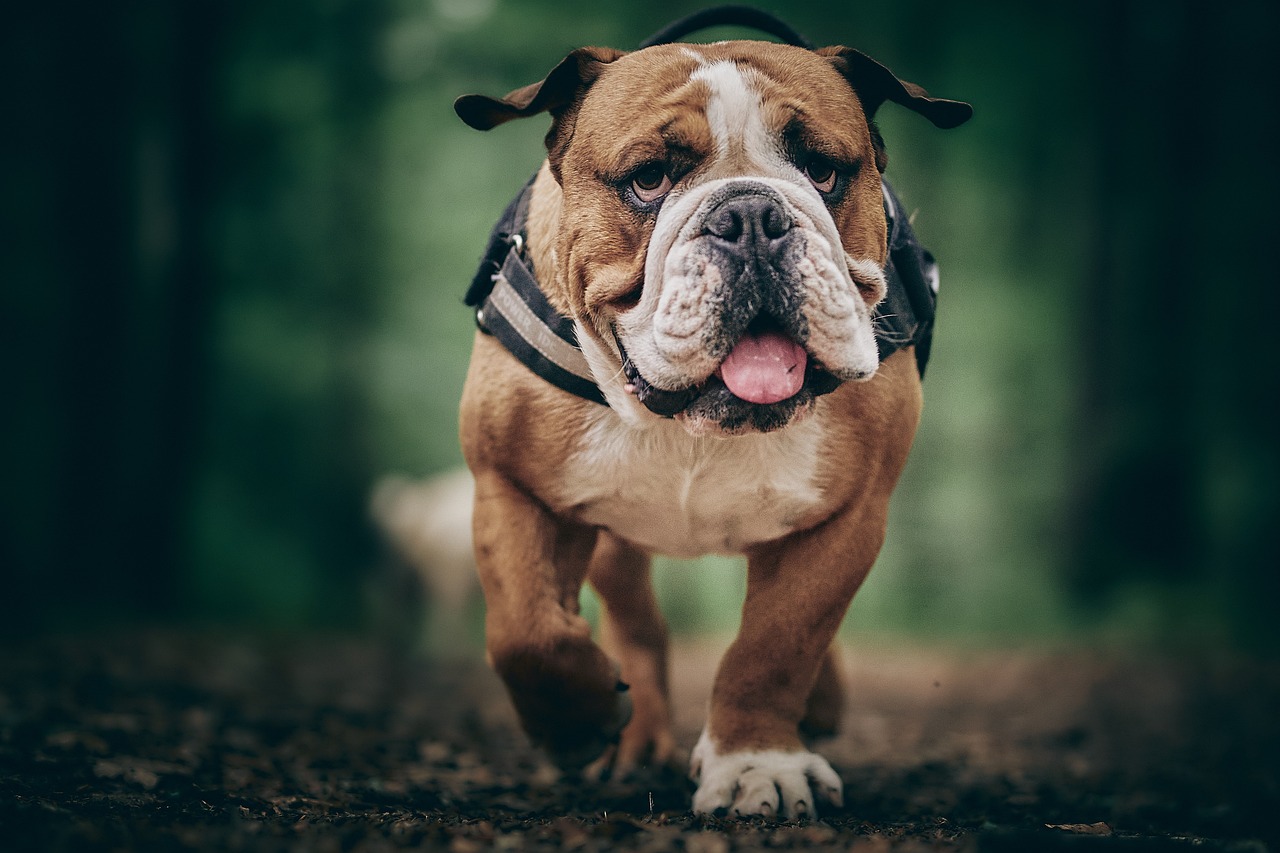
Health Considerations
When it comes to the health of French Bulldogs, there are several important factors to consider. Like many purebred dogs, they are predisposed to certain health issues that potential owners should be aware of. These adorable companions may look tough with their muscular build, but they can be quite sensitive, especially when it comes to their respiratory and skin health. Understanding these health considerations is crucial for ensuring a long, happy life for your Frenchie.
One of the most significant health concerns for French Bulldogs is their brachycephalic facial structure. This unique feature gives them their charming appearance, but it also leads to breathing difficulties. Brachycephalic dogs have shorter airways, making them more prone to conditions like Brachycephalic Obstructive Airway Syndrome (BOAS). Symptoms may include snoring, labored breathing, and excessive panting, especially in hot weather. It's essential to monitor these signs and consult a veterinarian if they become pronounced.
In addition to respiratory issues, French Bulldogs are also susceptible to a variety of skin conditions. Their short coat may be low-maintenance, but their skin folds can trap moisture and debris, leading to infections. Regular cleaning of these folds can help prevent problems like pyoderma or other bacterial infections. A good rule of thumb is to check and clean their skin folds at least once a week, ensuring that your furry friend stays comfortable and healthy.
Another area of concern is their susceptibility to hip dysplasia and other joint issues. This can be particularly troubling as they age. Regular vet check-ups and maintaining a healthy weight can help mitigate these risks. A balanced diet and appropriate exercise are vital in keeping their joints healthy. Speaking of diet, be cautious about overfeeding, as French Bulldogs can easily become overweight, exacerbating other health issues.
To give you a clearer picture of the common health issues faced by French Bulldogs, here's a table summarizing these concerns:
| Health Issue | Description | Symptoms |
|---|---|---|
| Brachycephalic Obstructive Airway Syndrome (BOAS) | Breathing difficulties due to short airways | Snoring, labored breathing, excessive panting |
| Skin Infections | Infections due to moisture trapped in skin folds | Redness, swelling, odor |
| Hip Dysplasia | Genetic condition affecting the hip joint | Limping, difficulty rising, reluctance to exercise |
Preventative care is essential for keeping your French Bulldog healthy. Regular veterinary check-ups can help catch any potential issues early. Vaccinations, flea and tick prevention, and heartworm medication should be part of your routine. Additionally, feeding your Frenchie a balanced diet tailored to their specific needs will help maintain their overall health.
As a loving owner, it’s also vital to be observant. If you notice any changes in your dog's behavior, appetite, or energy levels, don’t hesitate to reach out to your veterinarian. Early intervention can make a significant difference in the health outcomes for your French Bulldog.
- What are the most common health issues in French Bulldogs? The most common health issues include breathing difficulties, skin infections, and hip dysplasia.
- How can I prevent health problems in my French Bulldog? Regular vet check-ups, a balanced diet, and maintaining a healthy weight are crucial for prevention.
- What should I do if my French Bulldog shows signs of breathing difficulty? You should consult your veterinarian immediately if your dog exhibits labored breathing or excessive panting.
- How often should I clean my French Bulldog's skin folds? It's recommended to clean their skin folds at least once a week.
Preventative Care
When it comes to keeping your French Bulldog healthy and happy, is absolutely essential. Just like us, our furry friends can face a variety of health challenges, and being proactive is the best way to ensure they live a long, fulfilling life. Regular veterinary check-ups, vaccinations, and a balanced diet are the cornerstones of their health regimen. Think of it as the foundation of a house; without a solid base, everything else can crumble.
One of the first steps in preventative care is scheduling regular visits to the vet. These check-ups are not just for when your pup is feeling under the weather; they are crucial for early detection of potential health issues. During these visits, your veterinarian will conduct a thorough examination, check for any signs of illness, and discuss your dog's diet and lifestyle. It’s a great opportunity to ask questions and get tailored advice.
Vaccinations are another vital aspect of preventative care. French Bulldogs are susceptible to certain diseases, so staying up-to-date on their shots is non-negotiable. Common vaccinations include rabies, parvovirus, and distemper. Your vet will guide you on the appropriate vaccination schedule, which typically starts when your puppy is just a few weeks old and continues throughout their life.
Another key component of preventative care is nutrition. A balanced diet plays a significant role in your French Bulldog's overall health. They tend to gain weight easily, which can lead to various health problems, including joint issues and respiratory difficulties. Therefore, it’s crucial to feed them high-quality dog food that meets their nutritional needs and to monitor their portions carefully. If you’re unsure about what to feed your pup, consult your vet for recommendations.
Additionally, keeping your French Bulldog active is vital for their physical and mental well-being. Regular exercise not only helps maintain a healthy weight but also keeps their mind sharp and engaged. Activities like short walks, playtime in the yard, or even interactive toys can keep them stimulated. Remember, a tired dog is a happy dog!
Lastly, don’t forget about dental care. Dental disease is common in dogs and can lead to serious health issues if left untreated. Regular brushing, dental chews, and professional cleanings can help keep your French Bulldog's teeth and gums healthy. Think of it as giving your pup a smile makeover; it’s not just about looks, it’s about their overall health too!
In summary, preventative care for your French Bulldog encompasses a variety of aspects, including:
- Regular veterinary check-ups
- Up-to-date vaccinations
- A balanced diet
- Regular exercise
- Dental care
By staying vigilant and proactive, you can help your French Bulldog avoid many potential health issues and enjoy a long, happy life by your side.
Q: How often should I take my French Bulldog to the vet?
A: It's recommended to take your French Bulldog for a check-up at least once a year, but more frequent visits may be necessary for older dogs or those with pre-existing health conditions.
Q: What vaccinations does my French Bulldog need?
A: Common vaccinations include rabies, parvovirus, and distemper. Your vet will provide a tailored vaccination schedule based on your dog's age and health status.
Q: How can I help my French Bulldog maintain a healthy weight?
A: Feed a high-quality diet, monitor portion sizes, and ensure they get regular exercise. Avoid overfeeding treats and table scraps to prevent weight gain.
Q: Is dental care really that important for my dog?
A: Yes! Dental health is crucial for overall health. Regular brushing and dental check-ups can help prevent serious health issues related to gum disease.
Common Health Issues
French Bulldogs, while adorable and affectionate, are not without their health concerns. As a breed, they are prone to several specific health issues that potential owners should be aware of. One of the most significant problems they face is brachycephalic airway syndrome, a condition caused by their short snouts. This can lead to breathing difficulties, especially in hot weather or during strenuous activities. It's crucial to monitor their breathing and avoid excessive heat to keep them comfortable.
Another common issue is hip dysplasia, a genetic condition that affects the hip joint's development. This can lead to arthritis and pain as the dog ages. Regular vet check-ups and maintaining a healthy weight can help mitigate these risks. Additionally, French Bulldogs are susceptible to skin conditions due to their unique skin folds. These folds can trap moisture and dirt, leading to infections if not cleaned properly. Regular bathing and thorough drying of these areas are essential for their skin health.
Furthermore, ear infections are another concern due to their bat-like ears, which can trap moisture. Owners should regularly check and clean their ears to prevent infections. Lastly, eye problems, such as cataracts and cherry eye, can occur in French Bulldogs. Keeping an eye on their eye health and consulting a vet at the first sign of trouble is imperative.
In summary, while French Bulldogs are generally healthy, they are prone to specific health issues that require attention and care. Understanding these conditions can help owners provide the best possible care for their furry friends. Here’s a quick overview of the common health issues:
| Health Issue | Description | Prevention/Treatment |
|---|---|---|
| Brachycephalic Airway Syndrome | Breathing difficulties due to short snouts. | Avoid heat and monitor breathing. |
| Hip Dysplasia | Genetic condition affecting hip joint development. | Regular vet check-ups and weight management. |
| Skin Conditions | Infections due to moisture in skin folds. | Regular cleaning and bathing. |
| Ear Infections | Infections from moisture trapped in ears. | Regular ear checks and cleaning. |
| Eye Problems | Cataracts and cherry eye. | Monitor eye health and consult a vet. |
Q: How can I tell if my French Bulldog is having breathing issues?
A: Look for signs like excessive panting, wheezing, or difficulty in breathing, especially after exercise or in hot weather. If you notice these symptoms, consult your vet immediately.
Q: What should I do if my French Bulldog has skin irritations?
A: Regularly clean the skin folds and consult your vet for appropriate creams or medications to treat any infections.
Q: Are French Bulldogs prone to obesity?
A: Yes, they can gain weight easily, which can exacerbate health issues. A balanced diet and regular exercise are crucial.
Q: How often should I take my French Bulldog to the vet?
A: Regular check-ups are recommended at least once a year, but more frequently if your dog shows any health concerns.
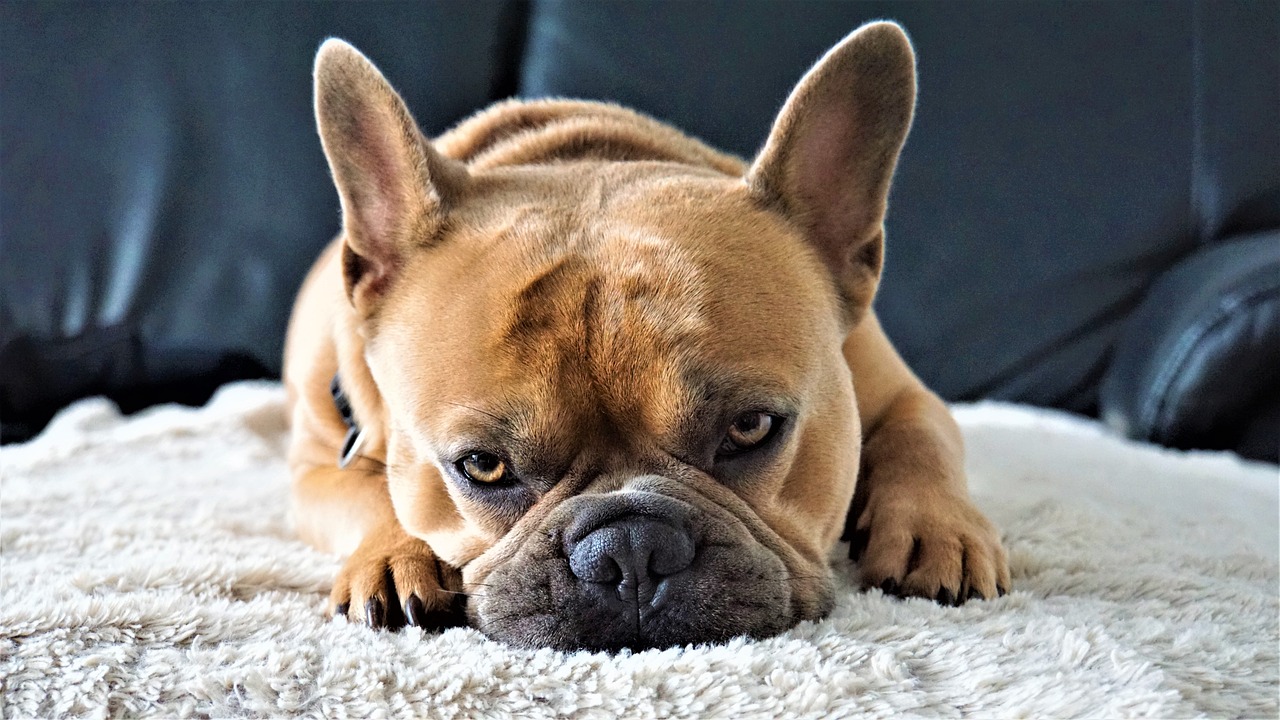
Grooming Needs
When it comes to grooming, French Bulldogs have some specific needs that every owner should be aware of. Their short, smooth coat may seem low-maintenance at first glance, but don’t be fooled! Regular grooming is essential not only for their appearance but also for their overall health. One of the most important aspects of grooming a French Bulldog is brushing. A weekly brushing session helps to remove loose hairs and prevents matting, which can be uncomfortable for your furry friend. Plus, it’s a great way to bond with your pet!
Another critical grooming task involves their facial folds. French Bulldogs are known for their adorable wrinkled faces, but these folds can trap moisture and debris, leading to potential skin issues. It’s essential to clean these areas regularly using a damp cloth. Make sure to dry the folds thoroughly afterward to prevent any irritation or infections. Keeping their ears clean is also vital; check them weekly for any signs of wax buildup or dirt, and gently clean them with a vet-recommended solution.
Bathing is another aspect of grooming that requires attention. While French Bulldogs do not require frequent baths—typically every few months or as needed—it’s crucial to use a dog-specific shampoo to avoid irritating their sensitive skin. Overbathing can strip their coat of natural oils, so finding the right balance is key. After a bath, ensure they are thoroughly dried, especially in the folds, to prevent any moisture-related issues.
Here’s a quick summary of the essential grooming tasks for French Bulldogs:
- Brush their coat weekly to remove loose hairs.
- Clean facial folds regularly to prevent skin infections.
- Check and clean ears weekly.
- Bathtime every few months or as necessary.
Lastly, don’t forget about their nails! Regular nail trimming is crucial to prevent discomfort and potential injuries. If you can hear their nails clicking on the floor, it’s time for a trim. If you're unsure how to do this, your vet or a professional groomer can help.
In summary, while French Bulldogs have relatively simple grooming needs, attention to detail is crucial. Regular brushing, cleaning of facial folds and ears, appropriate bathing, and nail care will keep your furry friend looking and feeling their best. Remember, grooming is not just about aesthetics; it’s about maintaining their health and happiness!
Q: How often should I brush my French Bulldog?
A: Ideally, you should brush your French Bulldog at least once a week to remove loose hairs and prevent matting.
Q: Can I use human shampoo on my French Bulldog?
A: No, it's best to use a dog-specific shampoo to avoid irritating their sensitive skin.
Q: How do I clean my French Bulldog's facial folds?
A: Use a damp cloth to gently wipe the folds, ensuring to dry them thoroughly afterward.
Q: How often should I bathe my French Bulldog?
A: Generally, every few months is sufficient, or as needed if they get particularly dirty.
Q: When should I trim my French Bulldog's nails?
A: Trim their nails when you can hear them clicking on the floor, which usually indicates they are too long.
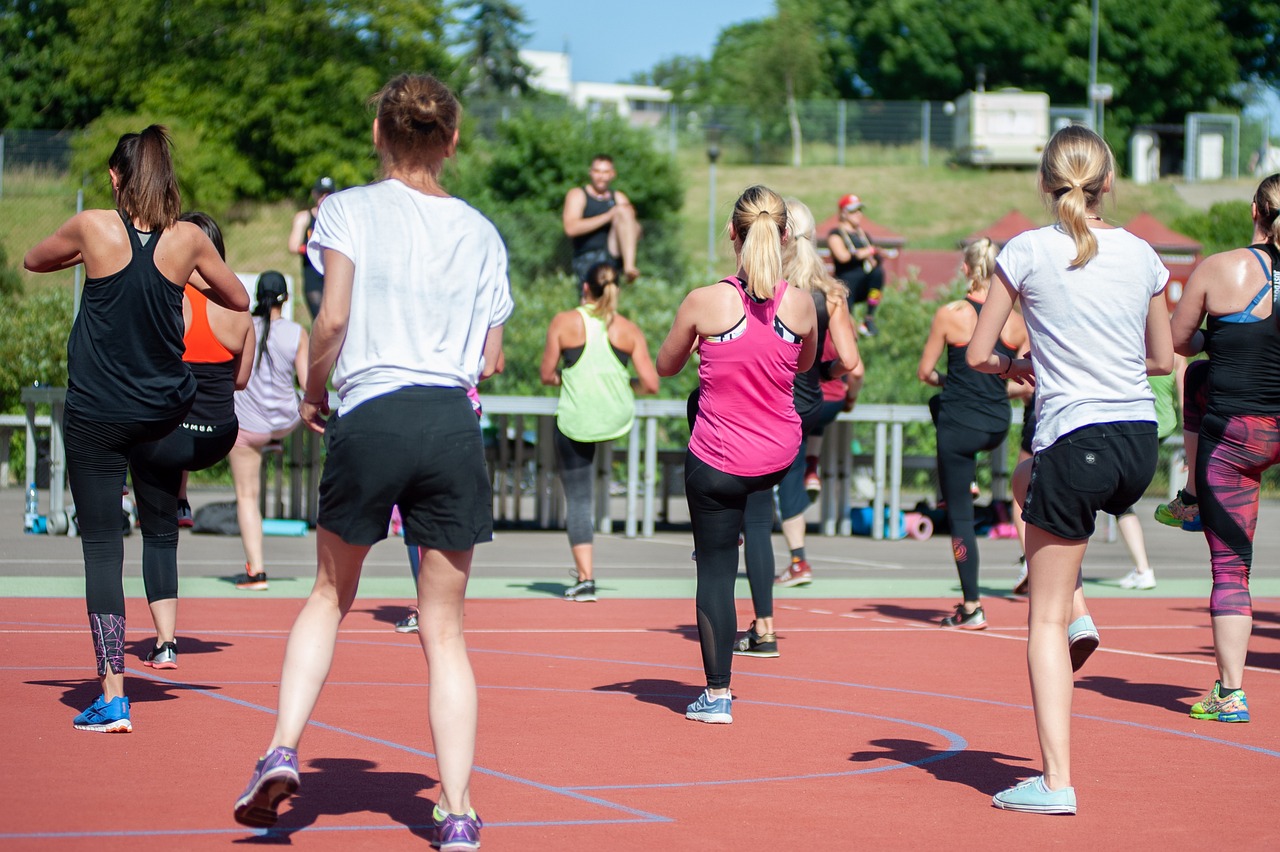
Exercise Requirements
When it comes to French Bulldogs, understanding their exercise requirements is crucial for their overall well-being. These adorable little companions may be small in size, but they have a big personality and a lot of energy to burn. While they don’t require the same level of exercise as larger breeds, they still need regular physical activity to maintain a healthy weight and mental stimulation. So, what does a typical exercise routine look like for a French Bulldog?
Generally, French Bulldogs thrive on short, frequent walks throughout the day. Aim for at least two walks of about 15 to 30 minutes each. This not only helps them expend energy but also provides an opportunity for socialization and exploration. Remember, these dogs are naturally curious and love to sniff around, so don’t rush their walks. Let them take their time to enjoy the sights and smells!
In addition to walks, engaging in playtime is essential. French Bulldogs enjoy games like fetch or tug-of-war, which can be a fantastic way to bond with your furry friend. Just keep in mind that they can tire out quickly, so monitor their energy levels and avoid overexertion, especially in hot weather. Their short snouts can make them prone to overheating, so always provide fresh water and take breaks as needed.
Here’s a quick overview of suitable exercise activities for French Bulldogs:
- Short walks: 15-30 minutes, 2 times a day
- Playtime: Engage in interactive games like fetch or tug-of-war
- Indoor activities: Puzzle toys or hide-and-seek games can keep them entertained
Creating a routine that includes both walking and playtime will not only keep your French Bulldog physically fit but also mentally sharp. Remember, a tired dog is a happy dog! If you’re thinking of incorporating more rigorous activities, be cautious. French Bulldogs are not built for endurance sports or long runs. Instead, focus on fun and engaging activities that suit their unique needs.
Q: How much exercise does a French Bulldog need daily?
A: French Bulldogs typically need around 30 minutes of exercise daily, divided into short walks and playtime. Adjust based on your dog's age and energy level.
Q: Can French Bulldogs go for long walks?
A: While they can enjoy walks, it's best to keep them short and frequent. Long walks can lead to exhaustion due to their brachycephalic (short-nosed) structure.
Q: Are there any specific exercises I should avoid?
A: Avoid high-impact activities or strenuous exercises, especially in hot weather. Focus on low-impact play that allows for short bursts of energy.
Q: How can I tell if my French Bulldog is getting enough exercise?
A: Signs of a well-exercised French Bulldog include a calm demeanor, a healthy weight, and no signs of destructive behavior. If they seem restless or overly hyper, they might need more activity.
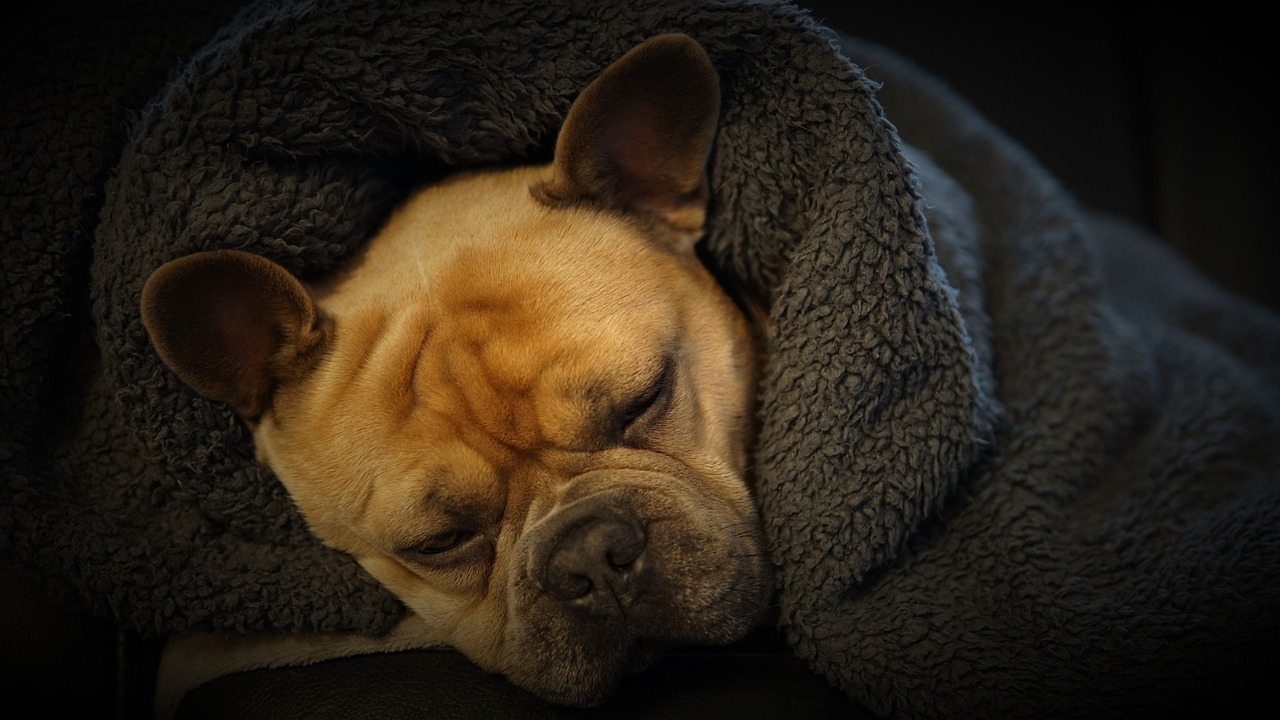
Living Environment
When it comes to the for French Bulldogs, versatility is one of their standout traits. These adorable little companions are incredibly adaptable, making them suitable for a variety of living situations. Whether you live in a cozy apartment in the city or a spacious house in the suburbs, a French Bulldog can thrive as long as their basic needs are met. Their compact size allows them to comfortably navigate smaller spaces, which is a huge plus for urban dwellers. However, it's essential to create a comfortable and stimulating environment to keep them happy and healthy.
One of the most critical aspects of their living environment is temperature control. French Bulldogs are brachycephalic, meaning they have short noses that can make breathing difficult, especially in extreme temperatures. It's vital to ensure that your home is well-ventilated and not too hot or cold. During the summer months, air conditioning or fans can help keep them cool, while in winter, a warm blanket or a cozy bed can provide the comfort they need. Always monitor them during outdoor activities, as they can easily overheat.
Furthermore, creating a safe space for your French Bulldog is crucial. You can do this by ensuring that your home is free from hazards, such as exposed wires, toxic plants, or small objects that they might swallow. Setting up a designated area for them, complete with a bed, toys, and food and water bowls, can help them feel secure and at home. French Bulldogs are known for their playful nature, so having a few toys around can keep them entertained and mentally stimulated.
In addition to their indoor environment, consider how your French Bulldog will interact with the outside world. While they may enjoy short walks and outdoor playtime, they are not high-energy dogs and do not require extensive outdoor space. A small yard or nearby park is usually sufficient for their exercise needs. Just remember that they are prone to heat exhaustion, so limit their outdoor activities during the hottest parts of the day.
In summary, whether you're living in a bustling city or a quiet suburb, French Bulldogs can adapt to your lifestyle as long as you pay attention to their specific needs. By providing a safe, comfortable, and stimulating environment, you can ensure that your French Bulldog will thrive and be a cherished member of your family.
- Can French Bulldogs live in apartments?
Yes, French Bulldogs are well-suited for apartment living due to their compact size and lower exercise needs. - How much exercise do French Bulldogs need?
They require moderate exercise, such as short walks and playtime, but should avoid strenuous activities, especially in hot weather. - Are French Bulldogs good with children?
Yes, they are known for their affectionate nature and can be excellent companions for children when properly socialized. - What kind of environment is best for a French Bulldog?
A comfortable, safe, and temperature-controlled environment is ideal, whether in an apartment or house.
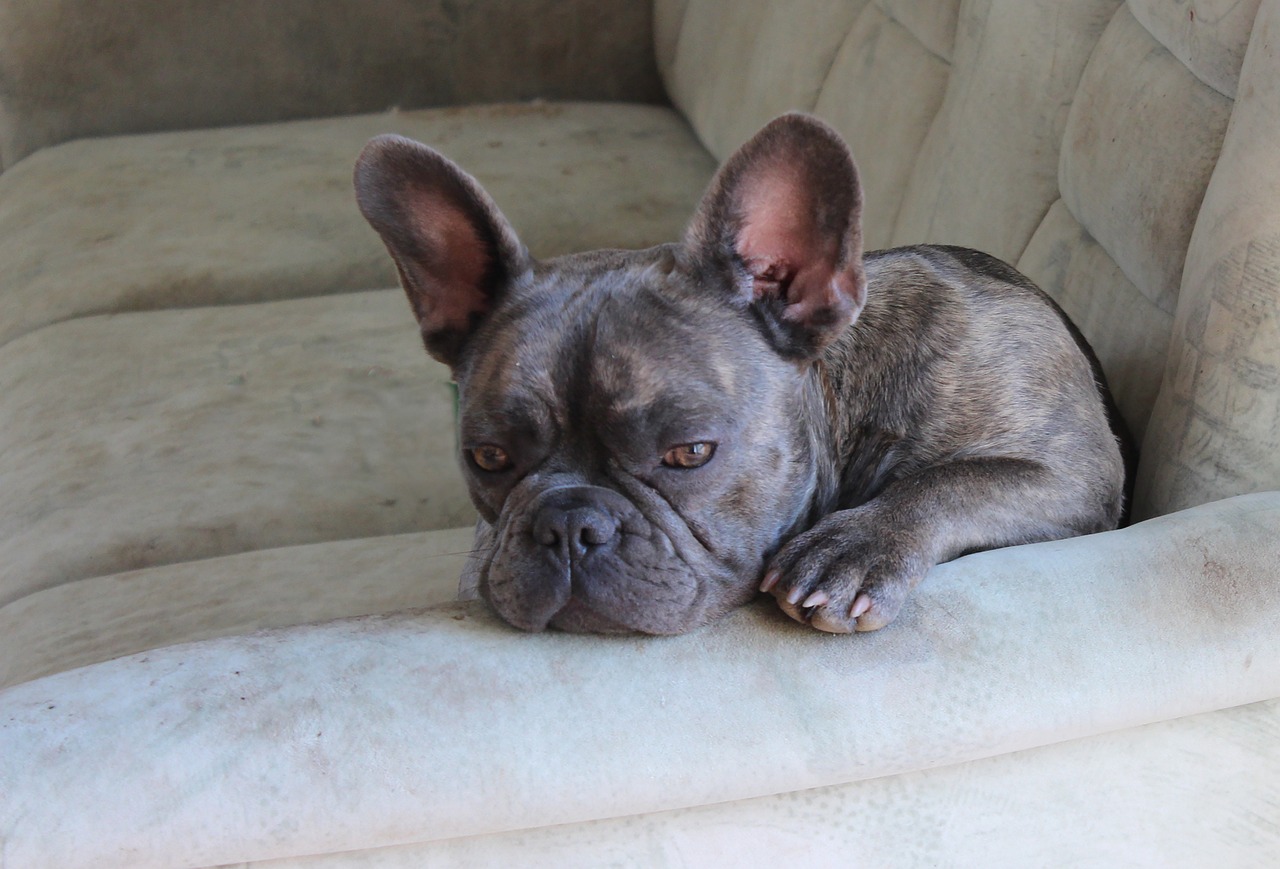
Choosing the Right French Bulldog
Choosing the right French Bulldog is a decision that requires careful consideration and a bit of research. These adorable little companions come with their own set of quirks and needs, and understanding these can make all the difference in ensuring a happy and healthy life for your new furry friend. First and foremost, you should think about whether you want a puppy or an adult dog. Puppies are undeniably cute, but they also require a lot of time, patience, and training. On the other hand, adopting an adult dog can sometimes mean you're saving a life while enjoying a pet that's already past the most challenging stages of puppyhood.
When looking for a French Bulldog, it’s crucial to find a reputable breeder. This means doing your homework! A good breeder will prioritize the health and temperament of their dogs over profit. They should be transparent about their breeding practices and willing to provide health clearances for the puppy’s parents. It’s also a good idea to visit the breeder’s facility in person, if possible. This allows you to see the living conditions of the puppies and their parents, ensuring they are raised in a safe and caring environment.
While you’re there, take note of the puppy's demeanor. A healthy French Bulldog puppy should be playful, curious, and friendly. Watch how they interact with their littermates and the breeder. If a puppy seems overly timid or aggressive, it might indicate underlying issues. Additionally, pay attention to the physical characteristics of the puppy. Look for clear eyes, clean ears, and a shiny coat. These are all signs of a healthy dog.
Another important factor to consider is the puppy's health history. French Bulldogs are prone to certain genetic conditions, so asking about the health of the parents and any health tests conducted is essential. Make sure to ask the breeder about common health issues in the breed, such as brachycephalic obstructive airway syndrome (BOAS), hip dysplasia, and skin conditions. A responsible breeder will be open about these concerns and provide guidance on how to manage them.
After you've found a potential puppy, consider your living situation. French Bulldogs adapt well to various environments, but they do best in homes where they are not left alone for long periods. They thrive on companionship and can become anxious if they feel abandoned. If you live in an apartment, ensure you have enough space for them to move around comfortably. Regardless of your living situation, creating a cozy and safe space for your new friend is essential.
Lastly, consider your lifestyle. French Bulldogs are known for their affectionate and playful nature, but they also require a moderate amount of exercise. If you lead a busy life, think about how much time you can dedicate to walking, playing, and training your new pet. It’s essential to strike a balance between your lifestyle and the needs of your dog to ensure both of you can enjoy a fulfilling relationship.
- What should I look for in a breeder? Look for health clearances, transparency about breeding practices, and a clean environment.
- Are French Bulldogs good with children? Yes, they are generally affectionate and protective, making them great companions for families.
- How much exercise do French Bulldogs need? They require moderate exercise, such as daily walks and playtime, to stay healthy.
- What health issues should I be aware of? Common issues include breathing difficulties, hip dysplasia, and skin conditions.
Frequently Asked Questions
- What are the key physical characteristics of French Bulldogs?
French Bulldogs are easily recognizable due to their compact size, muscular build, and unique bat-like ears. They typically weigh between 16 to 28 pounds and stand about 11 to 12 inches tall. Their short, smooth coat comes in a variety of colors, making them visually appealing to many dog lovers.
- How would you describe the temperament of a French Bulldog?
These little bundles of joy are known for their affectionate and sociable nature. French Bulldogs are playful, loyal, and thrive on human companionship, making them excellent family pets. They are typically good with children and other pets, exhibiting a friendly demeanor that warms hearts.
- What are some common health issues associated with French Bulldogs?
Like many breeds, French Bulldogs can face specific health concerns. Common issues include brachycephalic airway syndrome, skin allergies, and hip dysplasia. Regular vet check-ups and being aware of their unique health needs can help manage these concerns effectively.
- What are the grooming needs for a French Bulldog?
French Bulldogs have minimal grooming needs due to their short coat. Regular brushing helps to minimize shedding, and they should be bathed as needed to keep their skin healthy. Don't forget to check their facial folds for cleanliness to prevent skin infections!
- How much exercise does a French Bulldog require?
While French Bulldogs are not overly active, they still need regular exercise to stay healthy. Short walks and playtime are usually sufficient. It's essential to avoid strenuous activities, especially in hot weather, due to their brachycephalic nature.
- Can French Bulldogs adapt to apartment living?
Absolutely! French Bulldogs are well-suited for apartment living due to their small size and relatively low exercise needs. Just ensure they have a comfortable space to relax and play, and take them for regular walks to keep them happy and healthy.
- What should I consider when choosing a French Bulldog puppy?
When selecting a French Bulldog puppy, look for a reputable breeder who prioritizes health and temperament. It's essential to observe the puppy's behavior and ensure it has been well socialized. Also, consider the puppy's health history and ask for any relevant health clearances.





